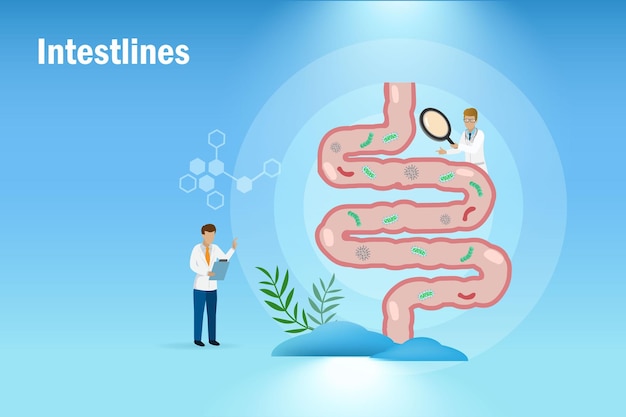The Colon & Its Function
The colon, a crucial part of the large intestine, sits between the small intestine and the anus. A healthy colon is about two inches in diameter, five to six feet long, and occupies most of your lower body cavity. Shaped like a “U,” the colon is divided into four sections: the ascending colon, transverse colon, descending colon, and sigmoid colon. Its primary functions include reclaiming water from digested food, absorbing nutrients, and providing an environment for beneficial bacteria that aid in digestion and other essential processes.
What Is a Colon Cleanse?
A colon cleanse involves flushing the digestive tract to remove harmful toxins, organisms, and accumulated waste. Many people find that regular colon cleanses significantly boost their overall wellness.
Signs Your Colon Needs Cleansing
Those who follow the Standard American Diet (SAD), rich in dairy, meats, sweets, and processed foods, often have accumulated waste in their digestive tract. This buildup of toxins can cause systemic changes, making you feel unwell.
These changes can manifest both internally and externally. For instance, an unpleasant odor in your sweat or breath can indicate a toxic colon. Poor overall health might be linked to sluggish bile production or conditions like Celiac disease, Crohn’s disease, ulcerative colitis, diverticulitis, or inflammatory bowel disease. Unhealthy bowels may also suffer from colorectal polyps, diverticula, and colon strictures, leading to sluggish digestion.
Eating unhealthy food can disrupt your gut flora, allowing harmful organisms to thrive. One such organism is Candida albicans, a fungus that can cause Candidiasis, a type of yeast overgrowth affecting the entire body.
Signs that you might need a colon cleanse include low energy, poor appetite, headaches, body aches, body odor, bad breath, constipation, skin blemishes, mental fog, and poor sleep.
What Are the Benefits of Colon Cleansing?
Maintaining a healthy colon supports a robust digestive system and overall well-being. The colon plays a central role in your body’s critical functions, directly affecting nearly every aspect of your health. A toxin-laden colon struggles to absorb nutrients and water, impairing detoxification and reducing the nutritional value of your food. An organic colon cleanse helps restore balance by irrigating the bowels.
A Boost of Energy
Many people report increased energy levels after a colon cleanse. Sluggishness often disappears, especially when combined with healthier food choices. Positive feedback frequently highlights how much better people feel post-cleanse.
Develop New, Healthy Habits
Colon cleansing often kick-starts healthy eating and wellness habits. Drinking more water, eating more fruits and vegetables, and exercising regularly help keep the bowels running smoothly and the blood flowing through the colon.
Removal of Compacted Waste
Eliminating processed and fatty foods during a colon cleanse makes it easier for the colon to expel waste. Drinking plenty of water aids in flushing out this unhealthy waste. Certain fruits, with their natural fibrous quality, further assist in moving waste out of the colon. Once this toxic matter is gone, the colon functions more effectively.
Better Digestion
Most people experience improved digestion after a colon cleanse. Resetting the colon helps the digestive tract process food more efficiently, promoting regular bowel movements and relieving occasional constipation.
What Are the Different Types of Colon Cleanses?
There are various colon cleansing methods and products, each with different levels of efficacy and safety.
Dietary Cleanses
Some cleanses involve dietary changes, eliminating foods like dairy, wheat, gluten, or meat that cause health concerns. Whether temporary or a complete lifestyle change, removing these foods serves as a diet-based cleanse. Replacing unhealthy foods with high-fiber, nutrient-rich fruits and vegetables, and drinking plenty of water, helps flush the bowels and cleanse the colon.
Simplifying your diet can help identify food sensitivities. Some people prefer a raw or vegan diet for cleansing, gradually reintroducing other foods. After following a simplified colon cleansing diet for seven to 30 days, you can reintroduce items, observing changes in your body or mood. Combining a cleansing diet with a colon cleanse supplement can enhance results.
Colonic Hydrotherapy or Irrigation
Colonic hydrotherapy, also known as colonic irrigation or lavage, is performed by a colonic hygienist or hydrotherapist. Despite its popularity, the safety of this technique is debated. A machine inserts a tube into the rectum to flush water through the intestines, with the hydrotherapist massaging the abdomen to help release waste. This process is repeated several times and may last up to an hour.
Colonic irrigation carries risks, including rectal perforation and potential contamination. Professional hygienists or hydrotherapists ensure optimal results and safety, using FDA-regulated equipment and purified water. Disposable rectal nozzles or sterilized stainless steel nozzles are essential for safety.
Enemas
An enema is a mini colonic, cleansing only the rectum and lower colon. Enemas can be self-administered at home or in a clinical setting. A liquid solution, such as mineral oil, sodium phosphate, or water, is introduced into the rectum through a tube and bag or bottle with a special tip. Massaging the abdomen helps loosen fecal matter, which is expelled after about five minutes.
Coffee enemas are popular but can cause electrolyte imbalance and dehydration. There are also reports of septicemia following their use. Disposable, one-time use enemas are recommended for safety.
Laxatives
Americans spend over $700 million annually on laxatives. Despite their common use, regular laxative use has serious health risks. Laxatives can irritate the intestines and colon, causing pain, cramping, and bloating. They may temporarily relieve constipation but can lead to chronic constipation and dependency. Laxatives are ineffective as colon cleansers, with inconsistent and incomplete action and uncomfortable side effects. A study in The American Journal of Gastroenterology found a 49% increase in colorectal cancer risk among frequent non-fiber-based laxative users aged 50-76.
Herbal Laxative Teas or Supplements
Some people use herbal laxative teas or herb-containing colon cleansing capsules or tablets as a natural way to relieve constipation. Common herbs include cascara sagrada bark, senna, burdock root, dandelion, cat’s claw, yellow or curly dock, licorice root, slippery elm, artichoke leaf, gentian root, rhubarb root, and aloe vera.
While some herbs are beneficial, others, like senna and cascara, can have harmful effects. Regular use of senna and cascara laxative tea may cause dark spots inside the colon, with unknown long-term health impacts. Some herbal teas contain caffeine, which stimulates the gastrointestinal tract but can increase gastric acid secretion.
Other herbal teas, such as peppermint tea, offer additional benefits. Peppermint helps patients with irritable bowel syndrome (IBS), while hibiscus, black, and green teas provide antioxidants that support normal blood pressure, cholesterol, and organ function. Turmeric, ginger, aloe, and other herbs have therapeutic properties that support digestion.
Fiber and Psyllium-Based Cleansing Supplements
Some over-the-counter colon cleansing supplements contain psyllium, a fiber-dense seed husk from the Plantago plant. Psyllium produces mucilage, a thick substance that helps move feces through the digestive system.
While fiber and psyllium can help with occasional constipation, they also have safety risks. Psyllium can cause dehydration and bloating, and some users experience allergic reactions. Psyllium-based colon cleansers may promise to clear black mucoid plaque, but the long, stringy black substance expelled is merely fecal matter combined with mucilage. The FDA has ruled certain psyllium-containing laxatives as “not generally recognized as safe” due to potential esophageal obstruction.
Oxygen-Based Colon Cleansers
Colon cleansers using ozonated magnesium are another option, arguably the best. By increasing oxygen in the gut, they help liquefy compacted waste along the colon wall, aiding expulsion. Ozonated magnesium cleansers also boost energy and encourage healthier digestion.
Are Colon Cleanses Safe?
Most natural, dietary cleanses are safe for healthy individuals. However, colonic irrigation, enemas, and over-the-counter laxative pills or certain herbal laxative teas can cause uncomfortable side effects, intestinal irritation, or dependency. Some herbal ingredients, like turmeric, ginger, and dandelion, are safe and gentle, aiding detoxification. For a full digestive system cleanse, an oxygen-based colon cleanser with pure ingredients is recommended for a gentle effect.



